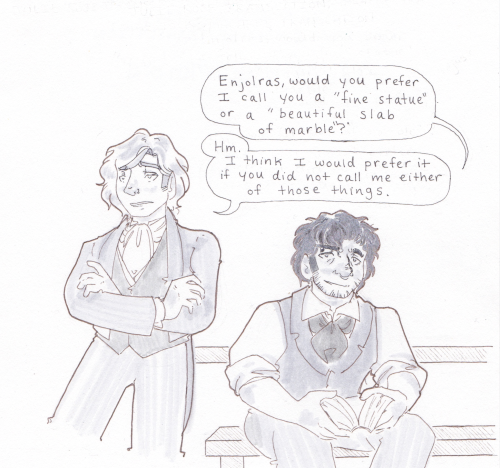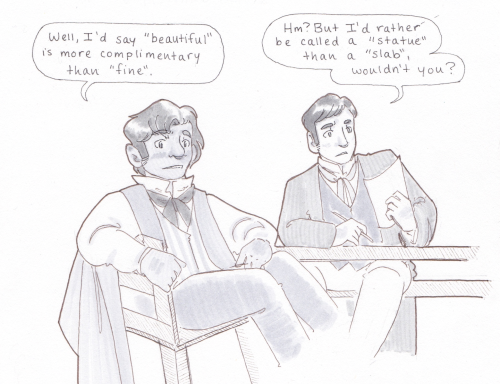pilferingapples:idontactuallylikethissite:star-crown:“allow us to have a philosophical debate about
pilferingapples:idontactuallylikethissite:star-crown:“allow us to have a philosophical debate about the nuances of this for the next five hours”(for what it’s worth, I only speak Google Translate French, but I’d probably split the different and translate it as ‘beautiful statue’? I mean, French has a word for ‘statue’, but I feel like ‘marble [statue]’ is the implication?… debate??)I mean, if we look at the other times that Enjolras is described as marble…“C'etait l'amour de marbre de la liberté“Granite-taire says: “Quel beau marbre!““il restaquelque temps debout à l'endroit où il avait versé le sang, dans uneimmobilité de marbre.“Et une larme coula lentement sur la joue de marbre d'Enjolras.I think the larger point are the characteristics that Grantaire is ascribing to Enjolras by comparing him to marble: purity, immortality, regalness, and aloofness. Though to your original point, I feel like because the “beau marbre” quip is placed in such close proximity to the Greek allusions Hugo draws, we’ve already got marble on our minds, which may not be accidental, considering the numerous parallels made between Enjolras and Greek mythology.….I mean also there’s the bit in Back Room of the Musain with Grantaire complaining about another Brutus being in love with a statue of a boy Grantaire has Issues About Marble Buuuuuuuuuuuuuut then again if you read it as marble-the-substance, you’re left with the interesting idea of Enjolras as a material from which something can be made, the Enjolras we meet in the introduction being unfinished and full of potential. -- source link
Tumblr Blog : star-crown.tumblr.com



